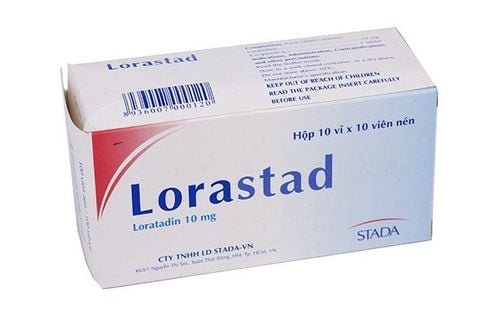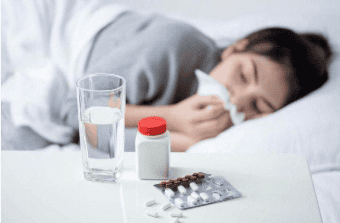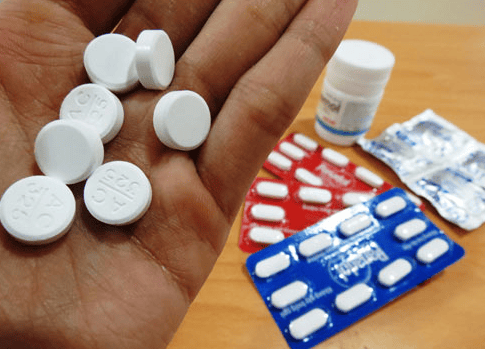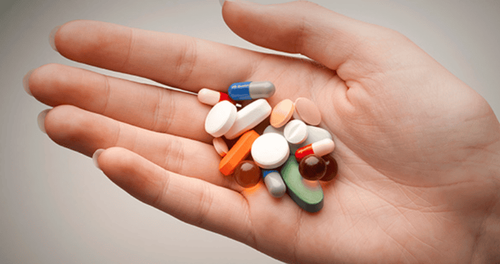This is an automatically translated article.
Agilodin is a drug containing the main active ingredient Loratadin 10mg with anti-allergic effect and used in cases of patients with hypersensitivity.
1. What is Agilodin?
Agilodin is produced with anti-allergic effect and used in cases of patients with hypersensitivity thanks to the active ingredient Loratadin 10mg. The active ingredient loratadine belongs to the group of potent, long-acting tricyclic antihistamines with selective peripheral H1-receptor antagonist activity.
The drug is rapidly absorbed after oral administration and the time to reach peak plasma concentrations is 1.5 and hours. Of which, 97% of the drug is bound to plasma proteins. The drug is metabolised by the liver by the cytochrome P450 microsomal enzyme system and is mainly converted to descarboethoxyloratadine, which has pharmacological effects. Studies have estimated that approximately 80% of the total dose of loratadine is excreted in the urine and feces to the same extent.
2. Effects of the drug agilodin
Loratadine is a tricyclic antihistamine with long-acting selective peripheral H1-receptor antagonism and no central nervous system calming effect. In addition, the drug also works against the symptoms of itching and urticaria related to histamine. However, Loratadine has no protective or clinically helpful effect on severe histamine release such as anaphylaxis. In contrast to the sedative side effects of first-generation antihistamines, loratadine has no sedative effect.3. How to use agilodin?
Loratadine is indicated for use in cases associated with allergic rhinitis such as runny nose, sneezing, itchy nose, itchy eyes. After oral administration, signs and symptoms of the nose and eyes may subside rapidly. Loratadine can also be used to treat the symptoms and signs of chronic urticaria and other allergic skin disorders.The drug can only be taken orally at the same time or not at the same time as a meal. In adults and children over 12 years of age, take one 5 mg or 10 ml (5 mg) film-coated tablet. Children 6 to 11 years of age receive a dose of 2.5 mg once daily.
Patients with intermittent allergic rhinitis with symptoms occurring less than 4 days/week or less than 4 weeks should be treated appropriately based on medical history assessment and should be discontinued when symptoms resolve and recur. treated when they reappear.
If allergic rhinitis persists with symptoms appearing more than 4 days/week and lasting more than 4 weeks, treatment can be continued during the time of allergen exposure.
4. Side effects of the drug agilodin
The drug does not cause significant drowsiness when taken at a daily dose of 10mg. Some common side effects include headache, fatigue, dry mouth, drowsiness; Digestive disturbances such as gastritis, nausea and allergic symptoms such as rash. Very rare cases such as anaphylaxis, hair loss, abnormal liver function. In controlled clinical trials in children, the results showed that effects such as sedation, headache, anxiety were very rare.
Agilodin is a drug containing the main active ingredient Loratadin 10mg with anti-allergic effect and used in cases of patients with hypersensitivity. To ensure the effectiveness of treatment and avoid unwanted side effects, patients need to strictly follow the instructions of the doctor, professional pharmacist.
Follow Vinmec International General Hospital website to get more health, nutrition and beauty information to protect the health of yourself and your loved ones in your family.
Please dial HOTLINE for more information or register for an appointment HERE. Download MyVinmec app to make appointments faster and to manage your bookings easily.













